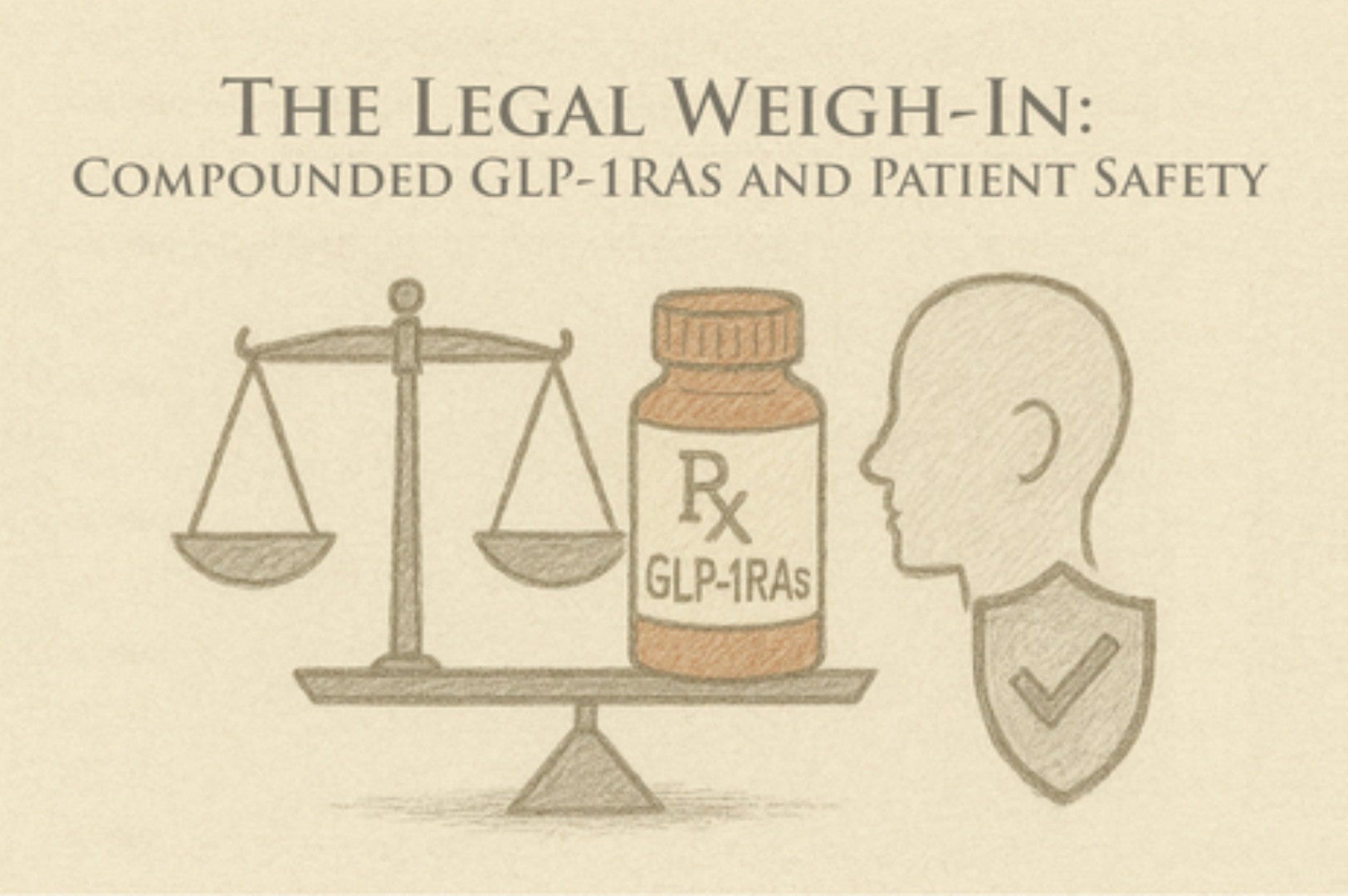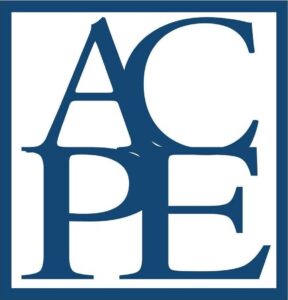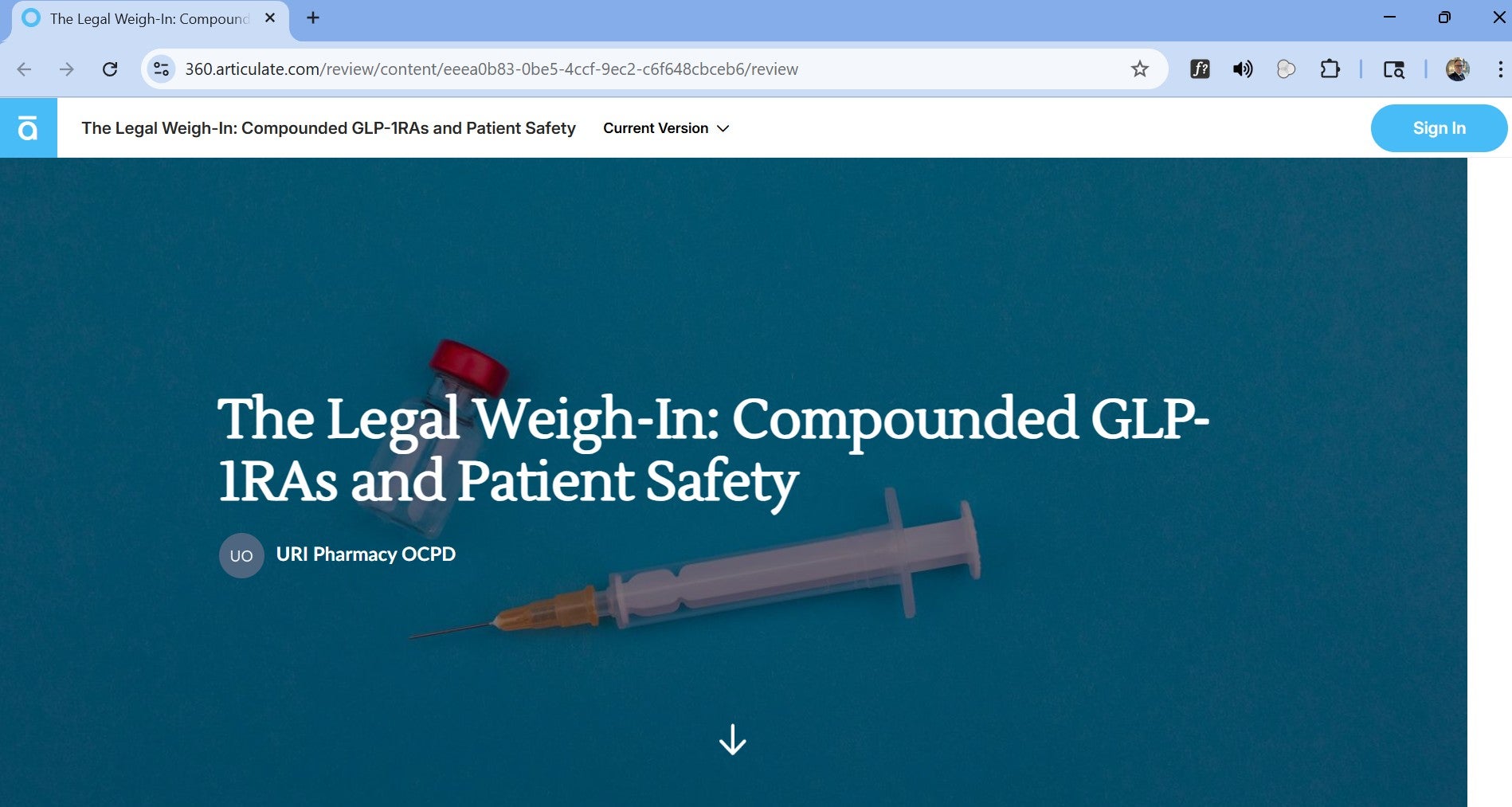
Overview
Compounded GLP-1ra are very popular and as they continue to be used, the FDA has released several safety alerts regarding their use. The legal landscape for why these products are available and how long they will be available is dependent on pending litigation as well as an FDA determination of a drug shortage. Pharmacists, especially within the primary care setting, need to be aware of the current events surrounding compounded GLP-1ra products from both a legal and safety perspective. The evolving landscape with these compounded products warrants a CE course to ensure pharmacists are kept informed.
This presentation will explain the legality behind why FDA-approved products can be compounded by groups external to the manufacturer and explain the safety risks that have been identified by FDA safety alerts.
CLAIMING CE CREDIT
This educational activity is provided free of charge.
If you wish to claim CE credit for participation there is a $7.00 accreditation service fee which is paid when you register for the course.
Target Audience
Pharmacists in all practice settings.
Learning Objectives
- Describe the differences between 503a and 503b compounding laws
- Define the benefits and limitations of current compounding legislation, considering their impact on the product availability and safety
- Explain why GLP-1Ras can legally be compounded
- Summarize safety concerns/alerts identified by the FDA regarding the use of compounded GLP-1ra products
Evaluation
All participants will have the opportunity to review the educational sessions and speakers and to identify future educational needs.
Statement of Disclosure
In accordance with the Accreditation Council for Pharmacy Education (ACPE) Standards for Continuing Pharmacy Education, The University of Rhode Island College of Pharmacy requires that program faculty disclose any relationship (e.g., shareholder, recipient of research grant, consultant or member of an advisory committee) that the faculty may have with commercial companies whose products or services may be mentioned in their presentations. No one involved in the planning of this program has any relevant financial relationships to disclose.
Content Creator
 Jack Mountain, PharmD
Jack Mountain, PharmD
Jack Mountain, PharmD, earned his Doctor of Pharmacy degree from the University of Connecticut in 2023 and completed a PGY1 residency at Cambridge Health Alliance. Currently, he is completing a PGY2 residency in ambulatory care at Rhode Island Hospital/University of Rhode Island. His clinical interests focus on primary care, academia, and addressing disparities in healthcare delivery.
CE Credit
The accreditation service fee for this program is $7.00
Steps to complete the program and claim credit:
- Complete the course linked below.
- Login or create an account in LUX LMS, URI’s learning management and CE reporting system, using your email address and professional license number. Complete all required account set up fields to ensure accurate CE reporting.
- Select “Available On-Line Activities” or “Home Study Programs” to find the educational activity.
- Select Take Post-Test and proceed to secure online payment (Visa, MC, AMEX, Discover and Electronic Checks are accepted).
Requirements for Credit
Completion of the online modules and program evaluations are required to earn credit. No partial credit is available for this program. Evaluations must be completed at www.uripharmacycpd.org within 60 days.
 The University of Rhode Island College of Pharmacy is accredited by the Accreditation Council for Pharmacy Education as a provider of continuing pharmacy education. This application-based program will provide 1.0 Contact Hour (0.1 CEU) for pharmacists. UAN: 0060-0000-25-031-H03-P
The University of Rhode Island College of Pharmacy is accredited by the Accreditation Council for Pharmacy Education as a provider of continuing pharmacy education. This application-based program will provide 1.0 Contact Hour (0.1 CEU) for pharmacists. UAN: 0060-0000-25-031-H03-P
Release Date: June 18, 2025 Expiration Date: June 18, 2028.

